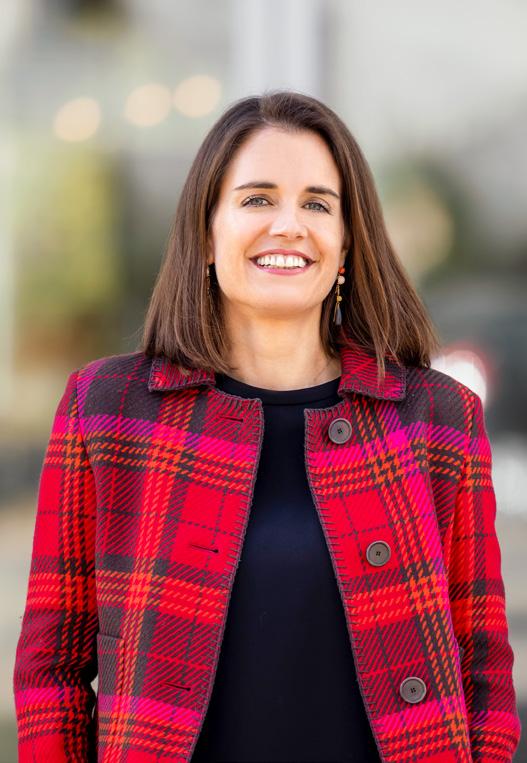
2 minute read
How sustainable is our milk?
Milk is our most important raw material. That’s why we want to process only sustainable milk worldwide by 2027. We explain what that means and how we approach it here.
Making sustainable milk the norm – an ambitious goal that is unique in the dairy industry. While many companies highlight individual sustainability topics such as emissions or animal welfare, we take a holistic view of sustainability.
A catalogue of criteria as a basis
What is sustainable milk? Together with experts such as the WWF, we have developed a list of criteria for this purpose, which evaluates eight aspects of sustainable milk (see box). The valuation is adapted to the conditions in the respective countries. In Tunisia, for example, where there are no pastures, sustainable feed (animal welfare aspect) is defined differently than in Switzerland.
Chile as a pilot
We started with Quillayes Surlat in Chile. We collected data on the eight aspects from 34 farms that produce 80% of the milk. The results showed that the areas of income and work, milk quality and the environment are already at a good level. Energy and materials, climate and biodiversity, on the other hand, are not.
The following objectives have now been defined: improve waste management and animal welfare and reduce the use of antibiotics.
One major challenge is that we receive this data from all companies. Not everyone works so closely and sustainably with their milk suppliers. Each subsidiary must therefore be considered on its own merits.
Progress in the divisions
Almost half of the milk at Emmi companies worldwide processes label milk. In other words, milk that goes beyond conventional milk in at least one sustainability aspect.
All companies have set themselves qualitative targets. Here is a selection of the status relevant to each one:
Laticínios Porto Alegre, Brazil:
The company has created an in-house standard, according to which around 10% of its farmers produce. In addition, LPA is working on a greenhouse gas reduction pathway.
Vitalait, Tunisia
With its own foundation, Vitalait supports the working conditions and incomes of dairy farmers in rural areas. This commitment is to be expanded further with the support of Swiss official development assistance.
Kaiku, Spain
In 2021, Kaiku established a starting point for sustainable milk. In total, the farmers score 66% of the possible points. Topics to be optimised include climate, biodiversity, materials and energy.
Emmi Roth, USA
The company is now including sustainability criteria in its tender for dairy cooperatives. Emmi Roth is also supporting a research project on healthy soil. The company also wants to assess the baseline situation and set quantitative targets to reduce emissions and water by 2023.

Glaserne Molkerei, Germany
The successful pilot of the biodiversity initiative is leading to the roll-out of support measures for more biodiversity and healthier soils to more and more farmers (12 in 2023).
Achieving success together
Only by working together with our partners and suppliers can we make a difference in the dairy industry. This is ensured by the internal focus issue group ‘Sustainable Milk,’ consisting of 15 people from all divisions. In January, for example, we visited our Spanish subsidiary Kaiku in Switzerland with a delegation of farmers, politicians and researchers. They wanted to learn more about the pioneering Swiss project “KlimaStaR” and start a similar project.
Text








